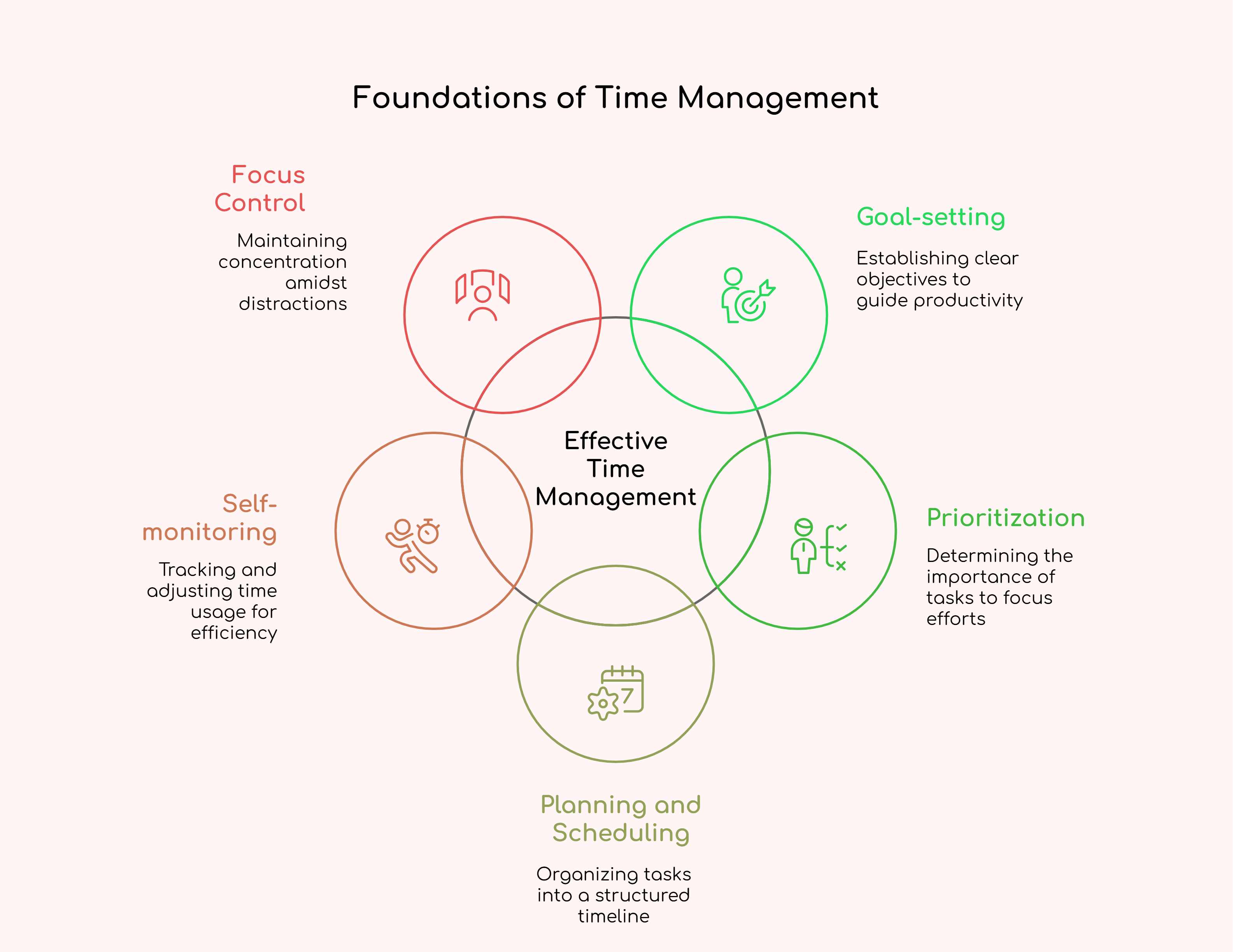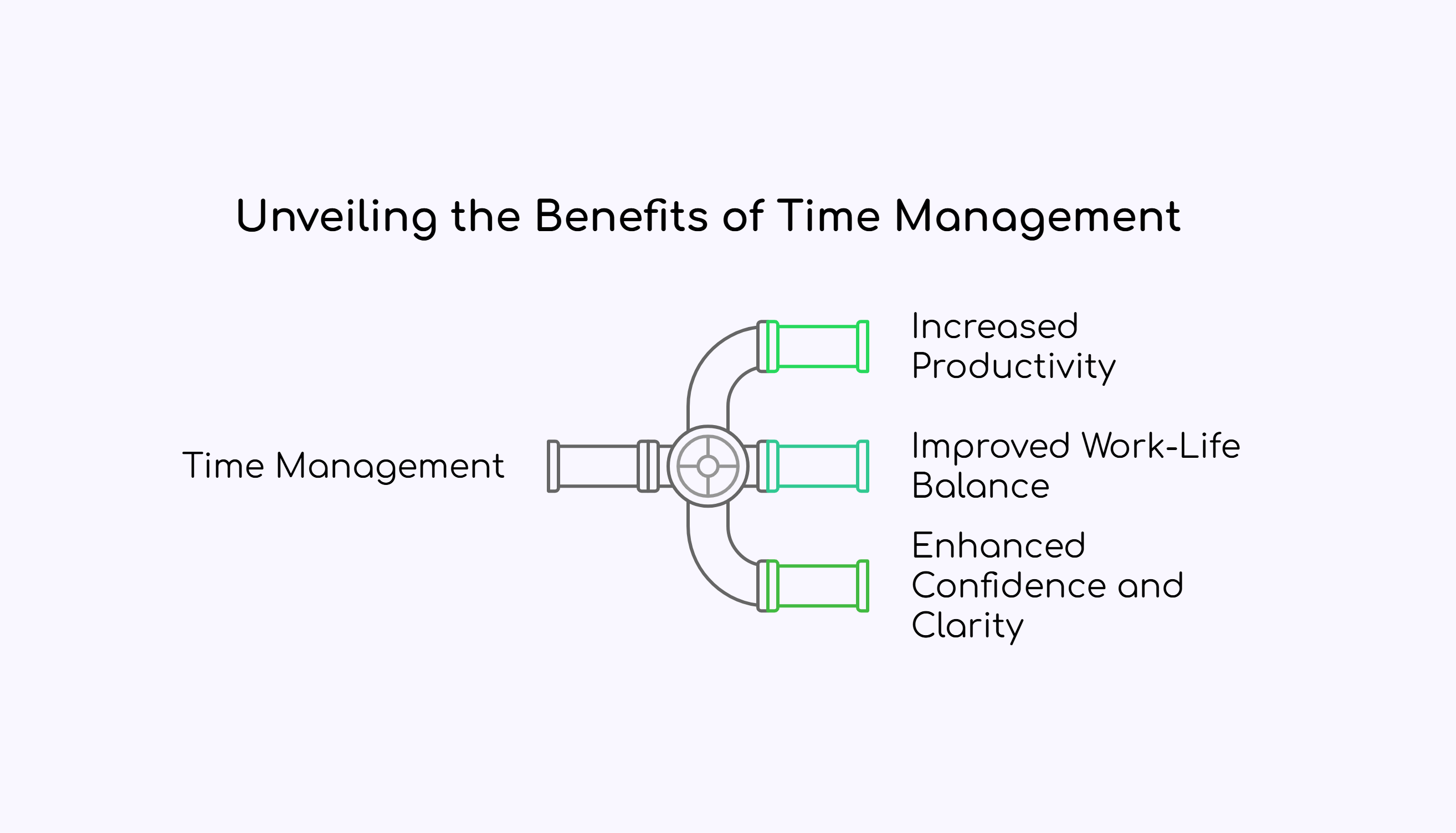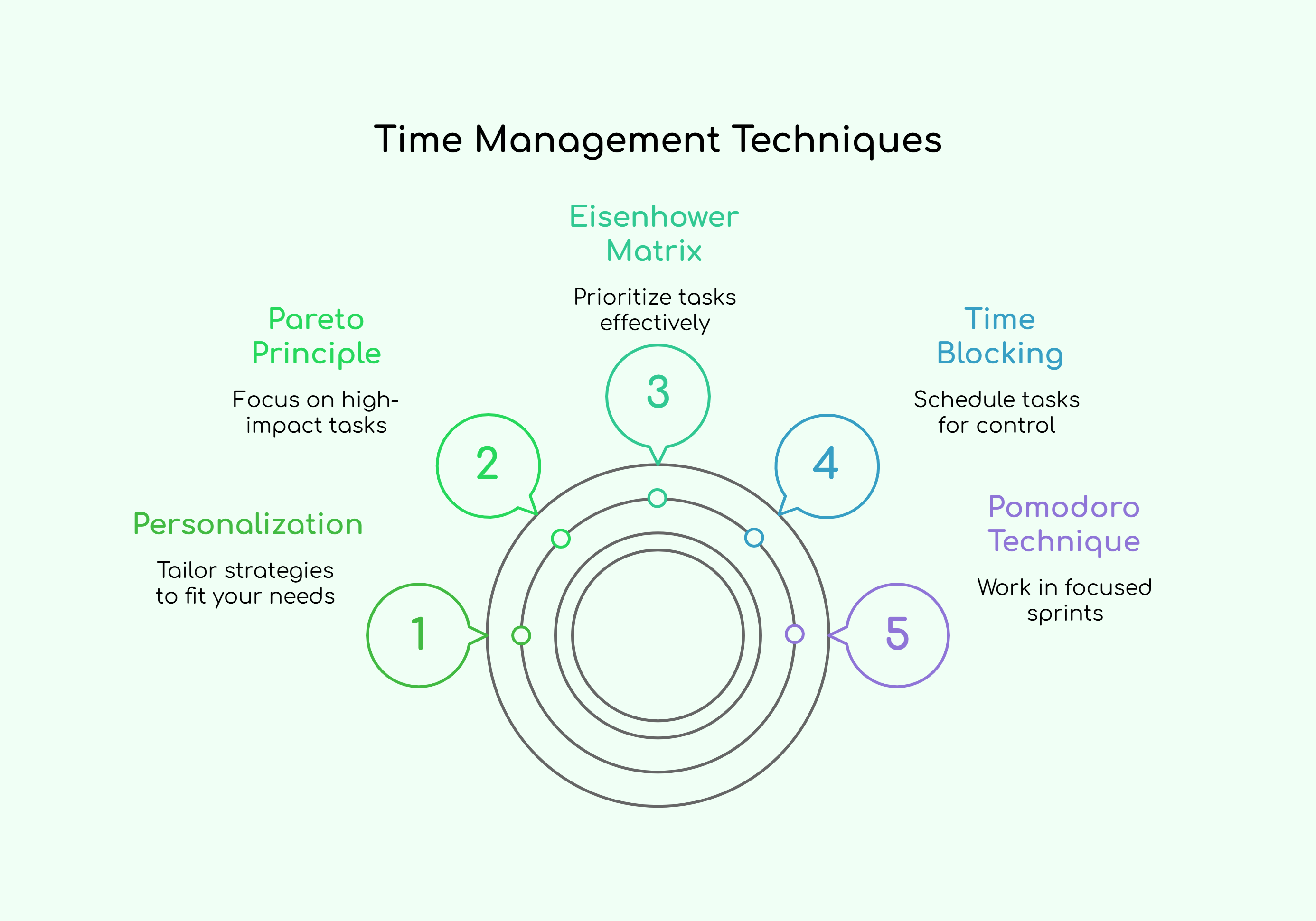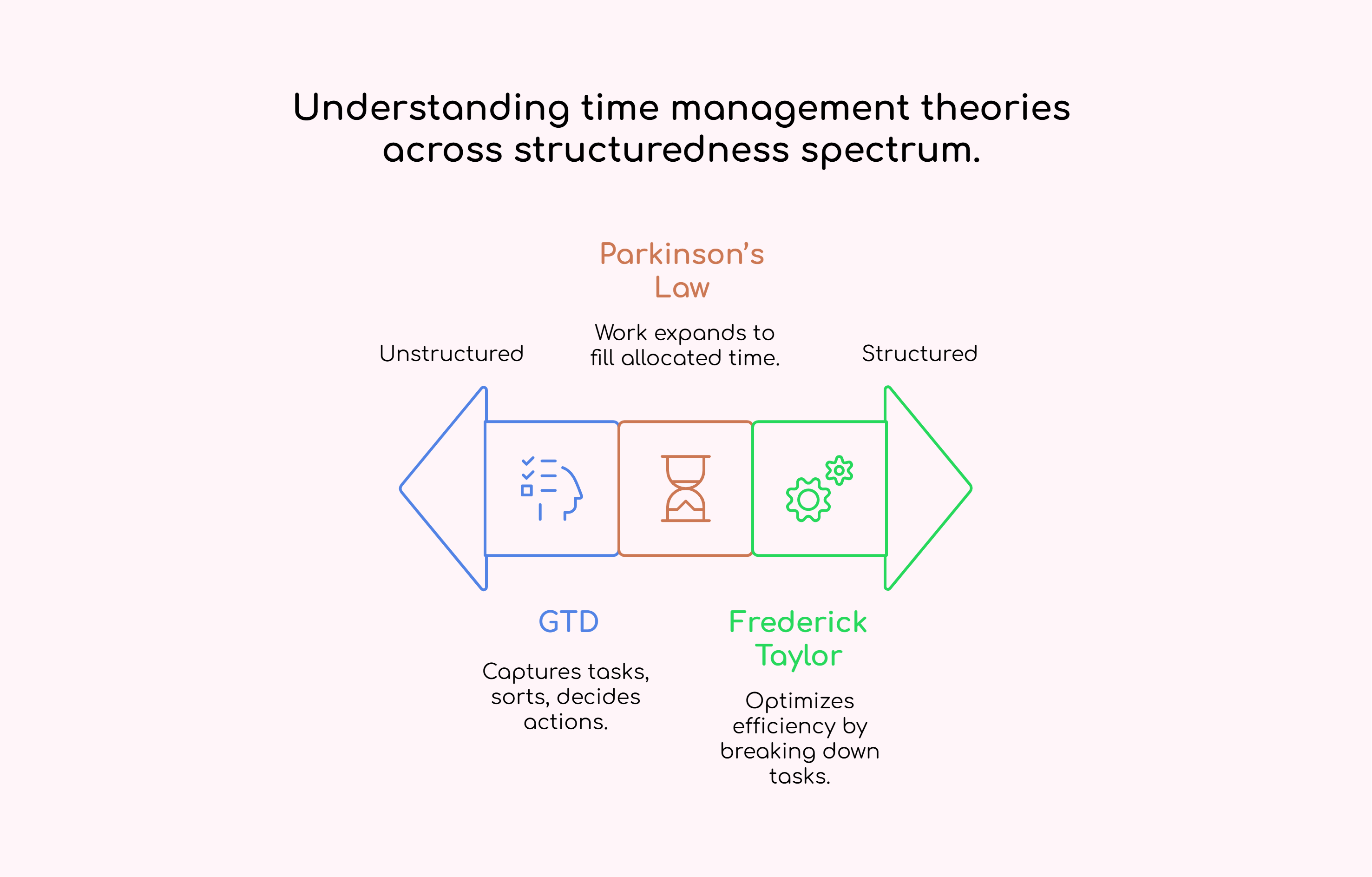Let me guess—you’re juggling deadlines, meetings, inbox overload, side hustles, and maybe even a social life (wild idea, I know). You're doing a lot, and there just never seems to be enough time.
If that sounds familiar, you’re in the right place.
I used to believe that time management was just about being "organized." I had color-coded calendars, shiny new planners, and an annoying habit of writing to-do lists only to ignore them. Turns out, good time management isn’t about doing more. It’s about doing what matters most, at the right time, in the right way.
In this guide, I'm taking you on a deep dive through everything you need to know about time management—from core concepts to powerful strategies, tools, and real-world applications you can start using today.
So grab a coffee (or tea–I don’t judge), and let’s master your time.
What Is Time Management?
Time Management Definition and Overview
Let’s start with the basics: what is time management?
Time management is the process of consciously planning, organizing, and controlling how you allocate your time to specific tasks so you can work smarter, not harder.
According to Oxford's definition, time management is the ability to use one’s time effectively or productively. But that’s just scratching the surface.
In real life, time management looks more like:
Saying “no” to things that don’t align with your priorities.
Setting clear boundaries between work, rest, and fun.
Breaking overwhelming goals into bite-sized tasks.
Avoiding burnout by building space into your day.
Think of it like budgeting—but for your most valuable resource: time.
Core Components of Effective Time Management

When people ask “what is time management skills,” these are the foundational elements I always mention:
Goal-setting: You need a clear direction, or you’ll just stay busy instead of being productive.
Prioritization: Figure out what truly deserves your attention and what can wait (or be ditched altogether).
Planning and scheduling: If it’s not on your calendar, it probably won’t happen.
Self-monitoring: Being aware of where your time is actually going—and tweaking your system as needed.
Focus control: Learning how not to get hijacked by every notification or impulse.
Let’s now dig into why all this matters...
Why Is Time Management Important?
You may already know time management helps you “stay organized,” but that’s just the surface. So, why is time management important?

Let’s look at what’s really at stake:
1. You Get More Done in Less Time (Without Burning Out)
When you manage your time well, you reduce wasted effort and maximize focus. That means:
Shorter workdays ✅
Less multitasking madness ✅
More energy left for things you love ✅
It’s like giving your brain a roadmap—it knows where to focus and when to rest.
2. You Improve Your Work-Life Balance
Have you ever reached Friday only to realize you’ve spent zero time on yourself? Effective time management allows you to carve out space for relationships, hobbies, and downtime without sacrificing your professional or academic goals.
3. You Build Confidence and Clarity
Knowing you’re on top of your tasks reduces anxiety and decision fatigue. It builds momentum—and that’s how big goals become manageable.
Essential Time Management Techniques and Strategies

Let’s cut to the chase—no fluff, just what actually works.
Here are a few proven time management strategies that can totally transform how you work and live. I’ve written detailed guides for each, so feel free to explore further:
Mastering Your Time: The Best Time Management Techniques for Students
Mastering Time Blocking: The Ultimate Guide to Taking Control of Your Day
Mastering Prioritization: The Student’s Guide to Getting Things Done (Without the Stress)
Quick Rundown of These Techniques:
Pomodoro Technique
Work in focused 25-minute sprints, followed by short breaks. Great for avoiding burnout and keeping focus.
Time Blocking
Schedule tasks into your calendar with specific time slots—like appointments with yourself.
Eisenhower Matrix
Distinguish between what's urgent vs. important. Eliminate the junk tasks that suck up time but don’t move you forward.
Pareto Principle (80/20 Rule)
Identify the 20% of efforts that create 80% of your results. Then double down on that 20%.
These aren’t one-size-fits-all. Try different ones. Combine them. Make them yours.
Key Benefits of Effective Time Management
It’s not just about crossing things off a list—effective time management changes how you experience life.
Here’s what it can actually do for you:
Boosts Productivity Without the Pressure
Because you’re working with intention, you move faster in the right direction—not just spinning your wheels.
Cuts Down Stress & Overwhelm
When you stay on top of tasks, there’s less last-minute panic. You feel in control—even during busy weeks.
Strengthens Decision-Making
A clear schedule + clear priorities = clear decisions. You stop second-guessing every task.
Makes Room for What Matters
More time for learning, passion projects, friends, and just... breathing. Because let’s be real—we all need breathing room.
How to Create a Personalized Time Management Strategy
Spoiler: the best strategy isn’t the one with the fanciest app—it’s the one that fits you.
I break this down step-by-step in How to Build a Personalized Time Management Strategy That Works for You, but here’s a quick roadmap.
Audit Your Time
Track everything you do for 2–3 days. Yes, even your TikTok scrolls.
Apps like RescueTime or Toggl can help you see where your time really goes. Awareness is the first step to change.
Define Your Priorities and Goals
Ask yourself:
What are my top goals this month/quarter/year?
What tasks align with those goals?
Set SMART goals (Specific, Measurable, Achievable, Relevant, Time-bound) to stay focused and realistic.
Choose Tools That Suit Your Brain
We’ll talk apps in a sec—but whether you’re a visual planner or checklist junkie, your tools should support how you think, not create more stress.
Review, Reflect, Repeat
Time management isn’t “set it and forget it.” Check in weekly. What’s working? What’s draining you? Adjust accordingly.
Time Management Apps and Tools
Let’s be honest—tech can either help you stay organized or throw you into another distraction spiral 🙃.
That’s why I created this complete guide: The Best Time Management Apps and Tools to Take Control of Your Day (Without Losing Your Mind)
Here’s a snapshot:
Task Management Apps
Tools like Todoist, Notion, or TickTick let you plan, prioritize, and track tasks in one place.
Check out: The Best Task Management Apps to Supercharge Your Productivity
Time Tracking Apps
Want to know exactly where your time is going? Use Harvest, RescueTime, or Toggl.
Guide: Best Time Tracking Apps to Boost Your Productivity (Without Losing Your Mind)
Pomodoro Apps
Apps like Focus To-Do or Forest use the Pomodoro method to help you stay in focus mode.
Details here: The 6 Best Pomodoro Apps to Supercharge Your Focus
Calendar & Scheduling Apps
Google Calendar, Fantastical, and Calendly help you plan your day and protect your time.
Try these: 6 Best Calendar and Scheduling Apps to Organize Your Life
Note-Taking & Planning Apps
Use Evernote, Obsidian, or GoodNotes to capture ideas, plan projects, or manage workflows.
Resources: The Ultimate Guide to Note-Taking and Planning Apps
Time Management in Management Theories
If you're a bit of a nerd like me (👋), you’ll love how deeply studied time management is in business and productivity circles.

Frederick Taylor’s Scientific Management
This 19th-century method involved breaking work into small tasks and optimizing for maximum efficiency. It laid the groundwork for modern time management.
Parkinson’s Law
“Work expands to fill the time available for its completion.”
If you give yourself a week to do something, it’ll take a week—even if it only needs a day. Imposing shorter deadlines is a great hack here.
GTD (Getting Things Done)
Developed by David Allen, GTD focuses on capturing all tasks, sorting them properly, and deciding on next actions. Reduce mental clutter, increase clarity.
Time Management Tips for Students
Students: I see you.
Between lectures, assignments, group projects, cramming, part-time jobs, and a social life (hopefully), it's a lot.
Here’s a quick cheat-sheet:
Use time blocking to carve out study and non-study times.
Pomodoro your way through boring topics.
Prioritize sleep & nutrition—you can’t manage time if your brain’s running on fumes.
Avoid multitasking—it feels productive but ruins retention.
For the full guide: Time Management Tips for Students: How to Stay on Top of Your Studies (Without Losing Your Sanity)
Mastering Time Without Losing Yourself
Let’s be real—you won’t be perfect with time management all the time.
That’s okay.
What matters is showing up, day by day, with the intention to spend your time better than yesterday. Time is precious, but you don’t have to be rigid or robotic to use it wisely.
Start small. Pick one strategy. Use one simple app. Build from there.
Because the truth is, small changes in how you manage your time can create massive shifts in how you experience your life.
Thanks for reading—and here’s to more time for what matters most. 💪⌛
Don’t forget to bookmark this post. You’ll want to come back to it anytime your schedule starts to spiral again—we’ve all been there.